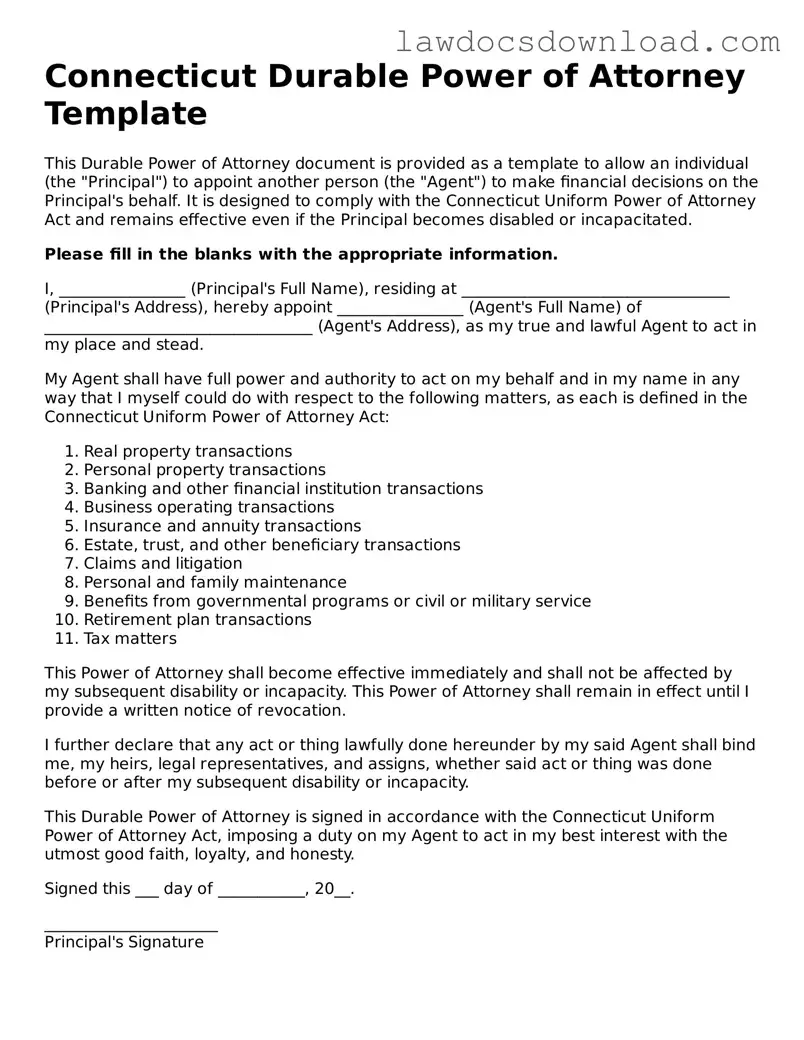Legal Connecticut Durable Power of Attorney Form
The Connecticut Durable Power of Attorney form is a legal document that allows an individual, known as the principal, to designate another person, called the agent or attorney-in-fact, to manage their affairs if they become unable to do so themselves. This form ensures that the principal's financial, legal, and health-related decisions are taken care of according to their wishes, even when they're no longer capable of expressing them directly. It's a crucial step for proactive planning, providing peace of mind to both the individual and their loved ones.
Launch Durable Power of Attorney Editor Here

Legal Connecticut Durable Power of Attorney Form
Launch Durable Power of Attorney Editor Here

Launch Durable Power of Attorney Editor Here
or
Free Durable Power of Attorney
Get this form done in minutes
Complete your Durable Power of Attorney online and download the final PDF.